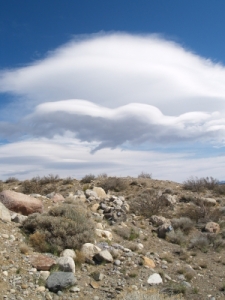TEA SERVICE
When my three children were very young, they had the great privilege of sharing tea with their maternal great-grandmother twice a month. Grannie was a force of nature, wearing pumps and skirts well into her 80’s and she could deftly navigate the rickety basement stairs in her 1920’s bungalow. She and my grandfather raised their five children here (with one bathroom I might add), my father being the eldest.
“Oh, I just have to pop downstairs to get one more thing”, she would say. The kids would always be curious as to what Grannie would emerge with. There was an endless array of “stuff” packed away down there. The eaves too were a walk through the American decades. Having survived the depression, nothing was getting thrown away and everything had three or twelve purposes. And shelf life was not in my grandmother’s vocabulary.
Yet, with all this clutter below the surface, every room in her home was always tidy. And her values were clear water clean. She valued children, and the raising of them.
And you would see this, always, in afternoon tea.
Grannie would lay out the table lovingly. If it were around Valentine’s, the kids were treated to a lace tablecloth and pink napkins, heart-shaped cookies with red sugar crystals. If it were September, she would set out linens in brown and orange and serve soft ginger cookies. Every sweet homemade from scratch. Oh, and always more than one kind. There were bone china cups, dainty and different, that would always match the theme. Even the pin on her sweater would reflect the season or occasion.
 Young as they were, I sensed their anticipation when I would tell them we were going to Grannie’s house. It could be “just” a Tuesday at 3 o’clock, but there was nothing just about it. There was celebration and presence in every moment.
Young as they were, I sensed their anticipation when I would tell them we were going to Grannie’s house. It could be “just” a Tuesday at 3 o’clock, but there was nothing just about it. There was celebration and presence in every moment.
They listened intently as my grandmother taught them how to play Pinochle, an old-fashioned card game. They would sit at the table for an hour or more, sipping tea and munching on cookies, being listened to and heard while sorting out their hand. Grannie, offering suggestions on a card, asking lots of questions.
The kids were learning the art of conversation and the richness of time that we have all but forgotten. Some of us, I’m afraid, have never had the grace to learn, yet.
It is simple really. This being present. But it takes practice. Kids get it and so do the elderly. The wisdom of knowing that the most important person is the one that is in front of you right now. That love and connection can only be cultivated in the here and now.
The sacredness of that time. And I the fortunate bystander. My children telling their great-grandmother about their friends and school and what they like to do and what their favorite color was. Grannie sharing about how she liked to swim and grow roses and read. The four of them laughing while she regaled them with what their mother was like when she was little or the kinds of shenanigans their grandfather would get himself into.
 This memory a reminder, a pointer, that ordinariness and specialness are always both, depending on what you bring to the party.
This memory a reminder, a pointer, that ordinariness and specialness are always both, depending on what you bring to the party.
“We come to realize that daily life is a theater of grace with continuous performances. The sacred is here and there and everywhere. – Frederic and Mary Ann Brussat










